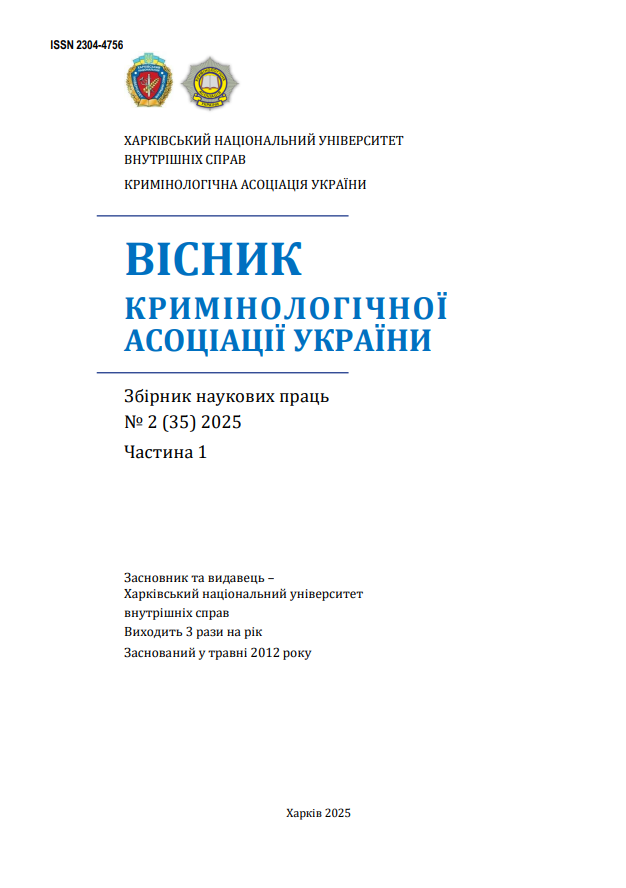ANTI-CORRUPTION POLICY IN THE STATE CUSTOMS SERVICE OF UKRAINE
DOI:
https://doi.org/10.32631/vca.2025.2.32Keywords:
customs service, customs rules, control, corruption, anti- corruption activities, risks, corruption risks, State Customs ServiceAbstract
European integration processes have been ongoing in Ukraine for a long time. One of the main requirements on the path to the European Union is the formation of an effective and efficient system of anti-corruption measures of a regulatory, organizational and institutional nature. This issue does not bypass the sphere of customs relations. In addition, customs very often acts as a visiting card of the country, as it systematically interacts with similar services of other states in matters of movement of goods across the border. The article emphasizes that the state of anti-corruption activities in the system of customs authorities needs to be improved. The reason for this is the large number of work processes, the implementation of which is defined as risky from the point of view of anti- corruption activities. Even the interpretation of the main powers of the State Customs Service of Ukraine, which contain the term "control", indicates that the activities of this body are prone to a high level of corruption. It is also worth emphasizing that this level is additionally, so to speak, stimulated by the availability of discretionary powers when making individual decisions by officials.
It is emphasized that within the framework of further improvement of anti- corruption mechanisms in the State Customs Service of Ukraine, it is worth directing activities in the following directions: increasing the transparency of a larger number of customs procedures; reducing the dependence of decisions or actions on the human factor; introducing automated, and preferably using artificial intelligence, analysis of risk actions and forecasting of risky operations; introducing analytical approaches to identifying typical violations and effectively eliminating the causes that led to their commission; reducing the amount of discretionary powers of customs officials, which has been repeatedly emphasized by the service itself in the register of corruption risks.
Downloads
Downloads
Published
Issue
Section
License
Copyright (c) 2025 В.С. СЕЛЮКОВ, А.В. ОМЕЛЬЧЕНКО-СЕЛЮКОВА

This work is licensed under a Creative Commons Attribution 4.0 International License.

